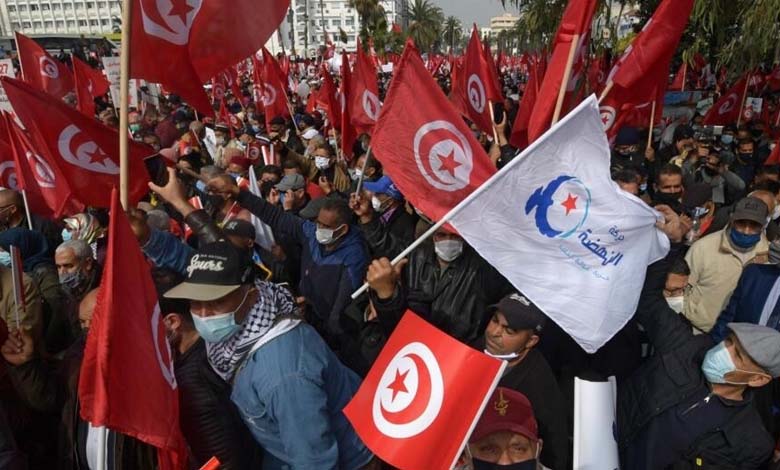Strategic Analyst: Tunisians Fear the Return of Ennahdha Movement to Power

Continuous Tunisian efforts persist to confront the threat posed by the terrorist group represented by the Ennahdha movement, primarily through the path of justice. During the dark decade of Ennahdha‘s rule, Tunisia witnessed extreme polarization that led to the crumbling of state institutions, division among organs and sectors, as well as corruption reaching domains such as the judiciary and destruction of documents related to terrorism, including political assassinations, money laundering, and sending citizens to join terrorist organizations in conflict zones, specifically Libya and Syria.
The Tunisian President had previously emphasized the necessity of monitoring funds flowing from abroad to parties and civil society. He stated that it was essential to track “political parties benefiting from funds transferred from abroad through deceptive means”, especially with some parties hiding within civil society entities, as revealed by a report from the “Roaya” news network.
Concurrently with the upcoming Tunisian presidential elections scheduled for this fall, and President Kais Saied‘s announcement of entering the electoral fray, the Ennahdha movement, which had boycotted previous elections, declared its participation. This appears to be a continuation of a state of confrontation and a desire for positioning despite the erosion of social blocs and associated bases, implying that this step seems nothing more than creating general uproar in the void, and an attempt to awaken polarization in Tunisian society after the rejection of the rule of the Muslim Brotherhood, politically and socially, following what was known as the “dark decade”.
According to the Emirates Policy Analysis Center, the organizational and political decline of the movement reveals a clear crisis within its leadership, where the appearance of young leaders has markedly decreased, while the emphasis is on personalities who experienced conflicts in the 1980s and 1990s with the state, whether the leaders currently in prison or the temporary leaders who replaced them. The presence of the Ennahdha movement within the Salvation Front, which includes secular and Islamic figures and parties, prevented the expansion of this front due to reservations from liberal and leftist parties about the presence of Islamists within it, holding them responsible for the current situation resulting from mismanagement of the transitional period before 2021.
According to the study, in addition to organizational decline and political retreat, the Ennahdha movement suffers more than ever from the dissolution of its social base after 10 years in power, as the movement has never been weaker on a popular level than it is today. Even at its peak during its conflict with President Habib Bourguiba’s regime in the 1980s and President Zine El Abidine Ben Ali’s regime in the 1990s, the movement maintained widespread sympathy and popularity among large segments of society due to its narrative of victimhood, but the 10 years in power have changed much of that sympathy.
Operating according to an agenda
Former Colonel of the Tunisian National Guard and security and strategy expert, Ali Zarmdini, explains that most leaders of the Muslim Brotherhood, whether living abroad or inside the country, operate according to an agenda and do not seek the country’s interest. Some of them live in their external exile, “and exercise a kind of confused reactions, sometimes reasonable and sometimes unreasonable”.
He added that the return of the Ennahdha movement to power is entirely excluded, emphasizing that Tunisians fear the return of the Ennahdha movement to power more than the deviation of the 25th of July path. In fact, the upcoming elections will be exclusively between the current president, Kaïs Saied, and his former ally in the 2019 presidential elections, Nizar Chaari. Neither of them can approach the Ennahdha movement, and they are both known for their fierce struggle against the system of corruption and monopolization that has infiltrated the Tunisian administration, due to the years of Ennahdha‘s rule.












